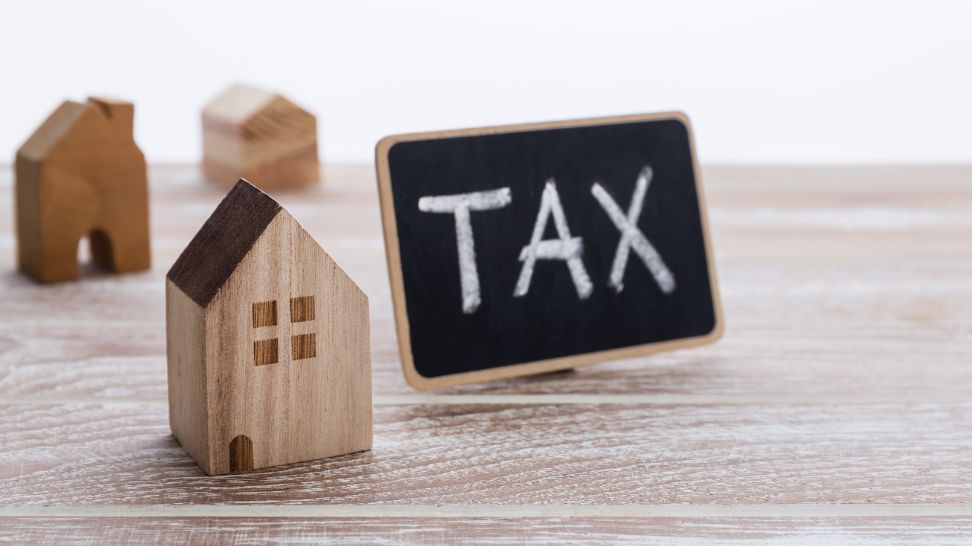According to the U.S. Bureau of Labor Statistics, the average American household spends just over $6,000 per month on bills. This number is almost 10% higher than it was just a few years ago.
Are you having a tough time taking care of your bills, or are you in charge of helping a loved one pay their bills and struggling to do it? Either way, if you or a loved one has created a trust, you might wonder, “Can I pay bills with money in a trust?”
Find out the answer to see whether you should consider using trust funds to cover everyday expenses or unanticipated costs.
Paying Bills With Money in a Trust
You’ll be happy to hear that the answer to the question, “Can I pay bills with money in a trust?” is typically “Yes.” Whether you’ve set up an offshore trust for yourself or you’re the trustee for a loved one’s trust, paying bills with money from it is possible.
However, learn about the process of paying bills with money in a trust before doing it. Some financial consequences may come along with removing money from a trust, and they should be on your radar.
Eligibility and Authorization
If you’ve established a revocable trust for yourself, you can utilize it to invest your money wisely. You can, for example, place stocks in a trust. You’re also eligible to use this trust to pay monthly bills and tackle estimated taxes.
If you’re the trustee for a loved one’s trust, you won’t always maintain as much control over it. But as part of your trust management duties, your loved one can permit you to use the funds in a trust to cover their monthly bills in a trust agreement.
Additionally, the trustee can use the money in a trust to pay bills in the aftermath of a loved one’s death. This money can pay for everything from burial costs for a loved one to their mortgage while the family decides what to do with their home.
Common Bills Paid From Trusts
The money in a trust, such as a Cook Islands Trust, can be used to pay many types of bills, including:
- Living expenses (groceries, car payment, cell phone, etc.)
- Credit card payments
- Tuition expenses
- Tax payments
Limitations on Paying Bills From a Trust
While the answer to the question, “Can I pay bills with money in a trust?” is usually Yes,” this isn’t always the case. Look at some limitations you might encounter.
Legal Restrictions
If you or a loved one created an irrevocable trust, you may deal with legal restrictions that can prevent you from using money in a trust to pay bills. With this type of trust, you can’t pay certain types of bills, such as:
- Property taxes
- Utility bills
- Other everyday expenses
If you created an irrevocable trust to qualify for long-term care from Medicaid, you might face more limitations when using money to pay bills. Using anything other than the income a trust generates could compromise the asset protection it provides.
Trustee’s Discretion
Generally speaking, a trustee has the power to make important decisions related to using the money in a trust to pay bills. But there are compliance requirements for trustees in each state. Research the answer to the question, “Can I pay bills with money in a trust?” based on your state’s laws.
Beneficiary Restrictions
There are trusts that come with specific rules about how and when money can be used for beneficiaries. These restrictions might limit your ability to pay specific bills. For instance, a trust may only permit funds to be used for healthcare costs or educational expenses. It’s important to review the trust document in order to understand if there are any limitations that apply to beneficiaries.
Other Expenses Covered by a Trust
You can pay for more than just bills with the money in a trust without running into major issues. Discover which expenses fall into this category.
Special Needs Expenses
The trustee for a special needs trust can decide how much money to provide for a person living with special needs. They can also limit the amount of money that someone with special needs can spend on certain kinds of items.
Unexpected Expenses
To cover unexpected expenses, you or a loved one has the option to create a reserve within a trust. This reserve can house funds you can utilize to pay for surprise medical expenses, back taxes, and more.
Tax Implications of Using Trust Funds
Prior to taking money out of a trust, make sure you’re aware of the potential tax implications.
Income Tax on Trust Distributions
If a trust distribution is sent to a beneficiary as part of an inheritance, the beneficiary who receives it may owe income taxes.
The only time when this isn’t the case is when beneficiaries receive trust disbursements from a trust’s principal. This refers to the original balance placed in a trust.
Deductions for Trust Expenses
The Internal Revenue Code’s Subchapter J lays out the deductions trustees can claim when overseeing a trust and taking care of its taxes. It enables trustees to file annual income tax returns on taxable income while also claiming deductions for expenses associated with operating a trust.
Best Practices for Managing Trust Payments
No matter what you might need to use the money in a trust to pay for, use these best practices. Managing trust payments can prevent legal problems and disagreements with beneficiaries.
Clear Documentation
Whether you’re pulling from your own trust or are the trustee for a loved one, document everything. The answer to the question, “Can I pay bills with money in a trust?” is often “Yes,” but you may need to prove how you’ve used money from a trust.
Working With Professionals
If you’re ever unclear about how you can use money in a trust, reach out to an experienced trust attorney. They can speak with you about how to pay bills with money from a trust without breaking any rules or facing big tax bills.
Have More Questions About How You Can Use a Trust? Contact Us for Help
“Can I pay bills with money in a trust?” probably isn’t the only question you have about trusts. Talk to a reputable trust attorney from Blake Harris Law to learn more about them. Contact us to schedule a consultation.




